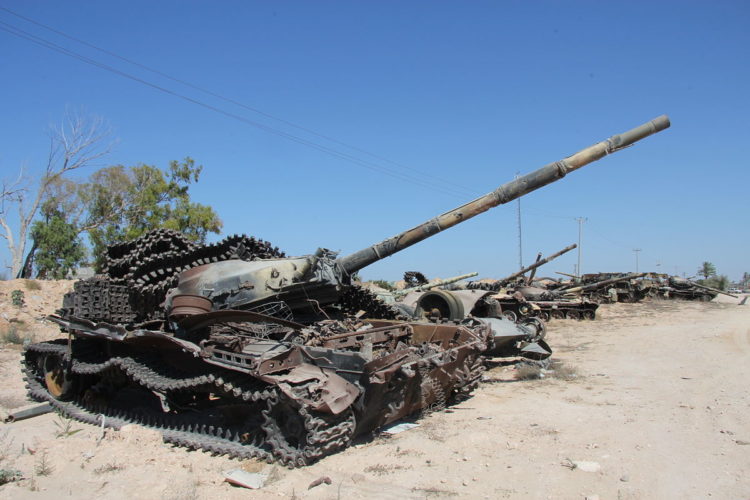Libyan The Libyan parliament has approved a new transitional unified government. This paves the way for the embattled North African country to have its first elections since the violent ouster of dictator Muammar Qaddafi in 2011.
The national elections have been ambitiously slated to take place on December 24.
Fayez al-Sarraj, head of the United Nations-recognized Government of National Accord (GNA), transferred power on Tuesday to Prime Minister Abdelhamid Dbeibah and Mohammad Younes Menfi, who chairs a three-member presidential council.
Dbeibah and his cabinet were sworn in during a ceremony in Tobruk. Dbeibah, 61, is a wealthy businessman from the western port city of Misrata, who once served in the government of Qaddafi. He is also known to be a supporter of the Muslim Brotherhood and close to Turkey.
The oil-rich country of Libya has been plunged into chaos since a revolt against the strongman Qaddafi began in 2011 with NATO backing. Qaddafi was deposed and later killed after an American drone spotted his fleeing entourage. The drone called in French fighters and the NATO airstrike destroyed a joint civilian/military convoy in which he and his supporters were riding in. He and senior members of his inner circle hid in drainage pipes.
Rebel forces found, captured, tortured, and then killed him with a bullet to the head. The entire spectacle was filmed on cell phones and broadcast on several news stations.
Rather than unite the country, the ouster and death of the Libyan strongman plunged it into civil war and chaos. Less than a year later, gunmen allied with al-Qaeda attacked the U.S. consulate killing three Americans including Ambassador Stevens.
The GNA was battling with General Khalifa Haftar’s Libyan National Army (LNA) forces from the east. Haftar has been supported by Egypt, the U.A.E., France, and Russia. The GNA has been supported by NATO and Turkey, which has brought into the fight several proxy militias.
Meanwhile, the UN Security Council welcomed the news of the unified government and in a unanimous vote, called for all foreign troops, mercenaries, and contractors to leave the country “without delay.”
“The Security Council calls on all parties to implement the ceasefire agreement in full and urges member states to respect and support the full implementation of the agreement,” read a released statement that was approved by all 15 Security Council members.
The UN estimates that there are at least 20,000 foreign fighters in Libya, including Syrians, Turks, Sudanese, and Russians who also brought their own proxy forces into the country.
Already have an account? Sign In
Two ways to continue to read this article.
Subscribe
$1.99
every 4 weeks
- Unlimited access to all articles
- Support independent journalism
- Ad-free reading experience
Subscribe Now
Recurring Monthly. Cancel Anytime.
A ceasefire reached in October between the warring sides called for all foreign fighters, troops, and mercenaries to leave the country within three months. Russia had sent up to 1,200 contractors from the Wagner Group to bolster Haftar and his forces. But since the ceasefire, no foreign troops from either side have left.
Now, a military coalition consisting of five members from each side, called the Joint Military Commission 5+5, has been meeting to organize efforts to clear landmines and war remnants on the road linking Sirte and Misrata.
There is finally some hope for peace in the country which has seen terrible suffering. Yet, the new Libyan unified government has a plethora of problems to solve including the ongoing COVID-19 pandemic and providing people with basic necessities like electricity, water, and food.










COMMENTS